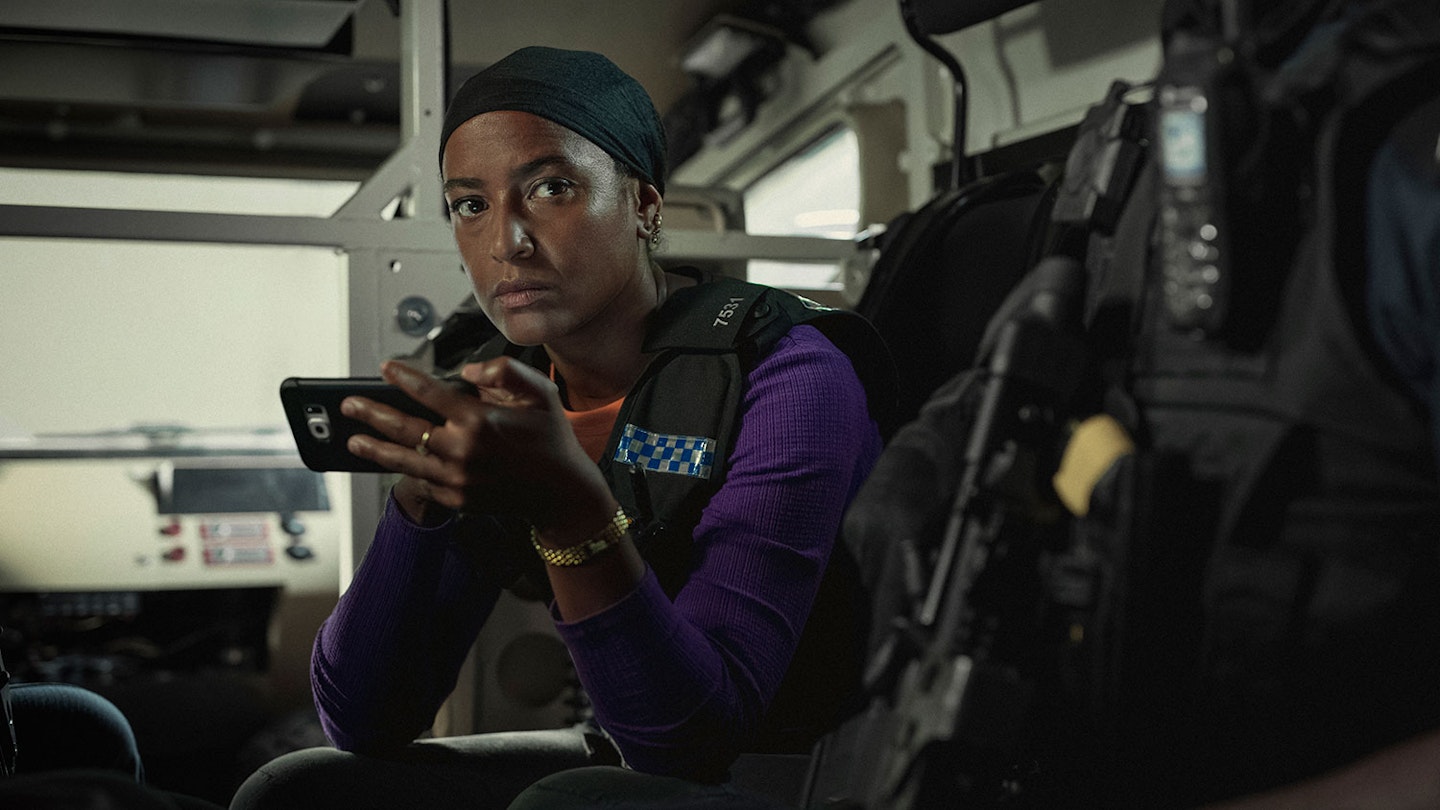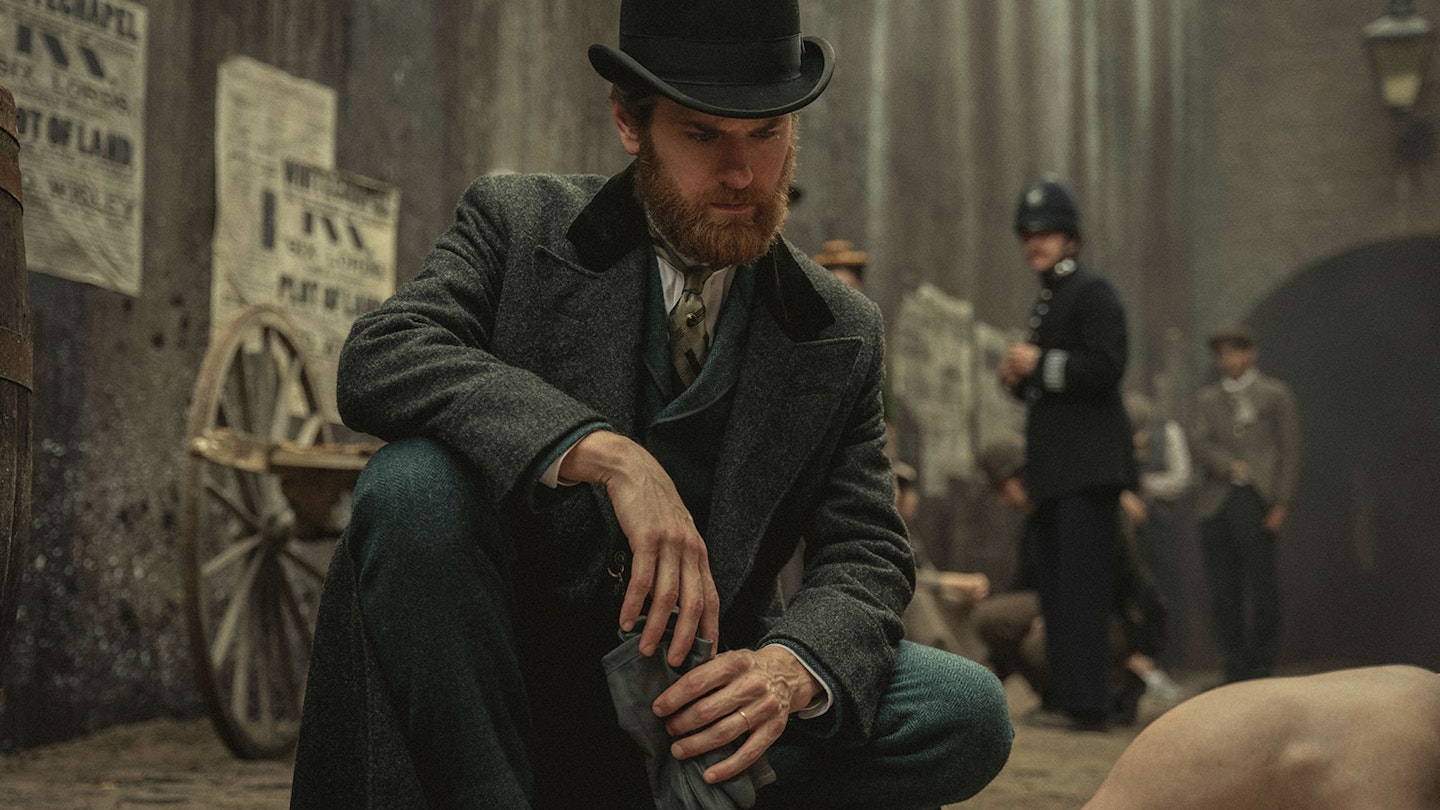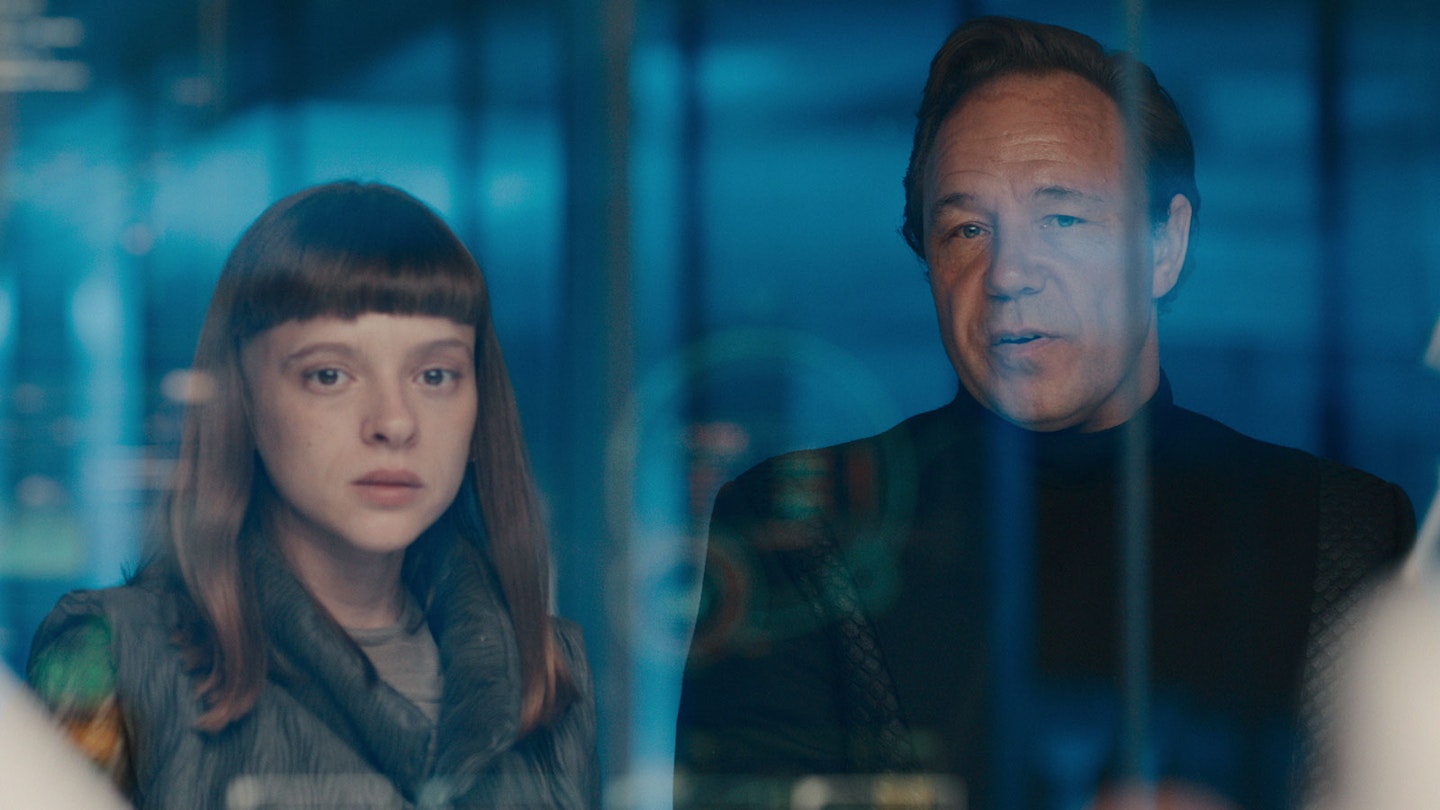Streaming on: Netflix
Episodes viewed: 4 of 8
“What is this, Time Team?” says one character in the fourth episode of Bodies. The title of that cosy archaeological Channel 4 dig-fest, beloved of all dads, might actually be a more appropriate name for Bodies. It’s a detective procedural with one big, grab-you-by-the-goolies, tales-of-the-unexpected premise: what if the same body turned up on the same London street, in four different times, across roughly 150 years?

It’s quite the audacious pitch. Episode 1 begins fairly straightforwardly in the familiar present of 2023, with DS Hasan (Amaka Okafor, excellent) forced to police a far-right rally on her day off — when a mysterious John Doe, naked and featureless but for a strange tattoo and an apparent gunshot wound to the eye, lands figuratively in her lap. Enough of a mystery on its own — but then an on-screen clock winds us back to 1941 and 1890, before skipping ahead all the way to a semi-dystopian 2053.
It’s just about worth sticking around for the big reveals, when they come.
We watch as roughly the same series of events transpires, four times over. Hasan’s equivalents — the (possibly?) bent copper DS Whiteman (Jacob Fortune-Lloyd) in 1941; the good-hearted but secretive family man DI Hillinghead (Andor’s Kyle Soller) in 1890; the lonely and semi-bionic DC Maplewood (Shira Haas) in 2053 — discover the same body in the same place, and we witness their investigations in parallel. Cross-cutting and split-screens draw neat narrative comparisons on everything from evolving policing techniques to shifting social attitudes (big themes like homophobia, sexism and racism interweave the cases).

As the series progresses, we are fed little breadcrumbs of how on earth the same corpse could keep popping up over the decades, and little scraps of Doctor Who-esque sci-fi begin to creep their way in (apt, given creator Paul Tomalin wrote an episode of Torchwood), usually heralded by a sinister Stephen Graham. He’s doing an odd sort of RP accent here, with a few of his natural Merseyside vowels sneaking through, but the Karl-Urban-in-The-Boys rule applies: vocal veracity becomes irrelevant stacked up against a performance of immense screen presence and power. You can always rely on Stephen Graham. He doesn’t disappoint.
What can disappoint is some of the show’s more clichéd choices. Despite its ambitious scale and grand Netflix budget, some of the filmmaking can feel more ITV than HBO. While that means it stays pleasingly British — it’s a bit like if The Bill did a sweary crossover with Goodnight Sweetheart — there are also quite bluntly obvious signifiers to signpost each time period: ‘We’ll Meet Again’ for the World War II era; severe fringes and smart fridges for the dystopian future. The nominal bad guys, meanwhile, are quite irritatingly familiar, fixed with rictus grins and cult-like devotion.
The slow drip-feed of clues can prove frustrating, too: the puzzle-box approach, so beloved in the bingewatch era, feels slow when characters are miles behind the viewers. But it’s just about worth sticking around for the big reveals, when they come. You can watch safe in the knowledge that there is no Lost-style fizzle-out on the horizon: this is a limited series, based on the graphic novel by Si Spencer, so Bodies has a finite end to look forward to. With such a tantalisingly original concept, it feels worth persevering with. They should have bought the rights to ‘Time Team’ off Tony Robinson, though.
